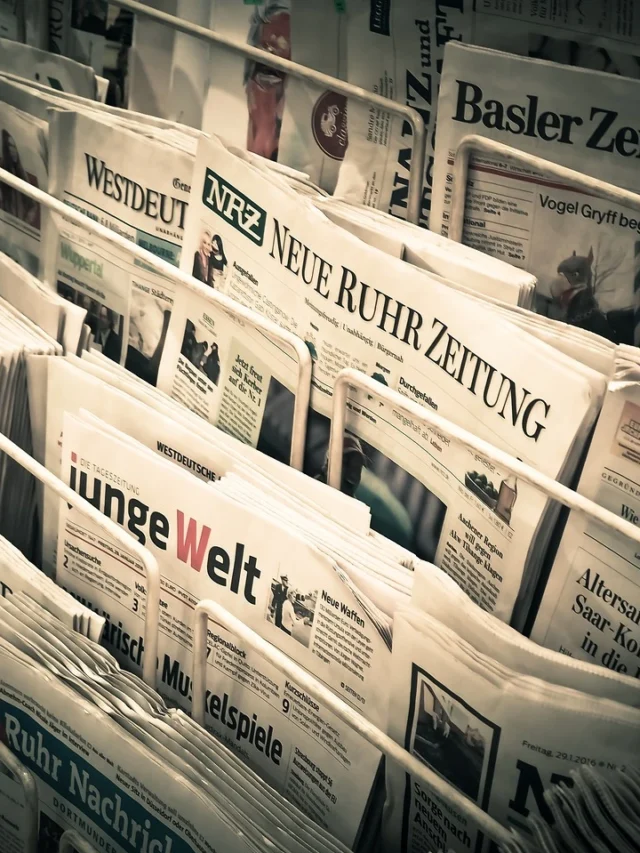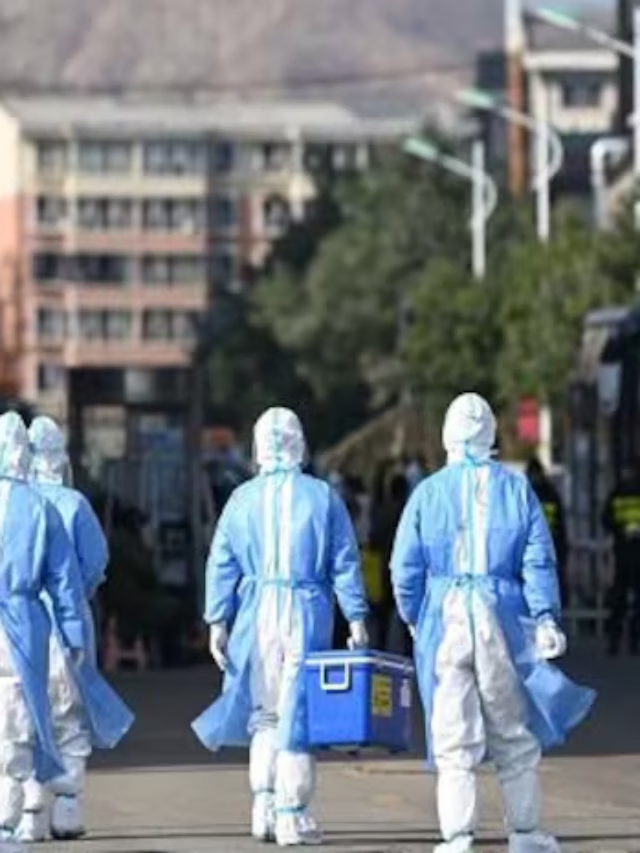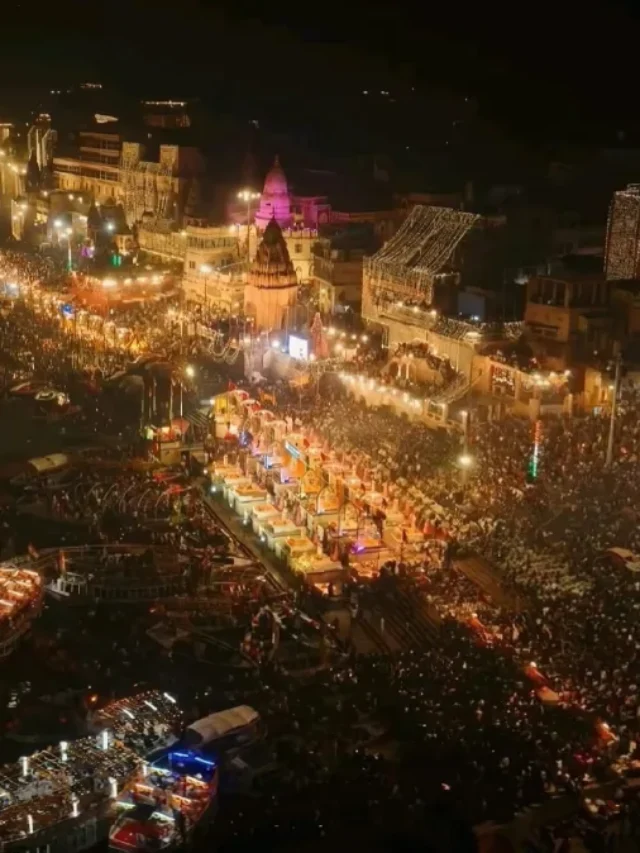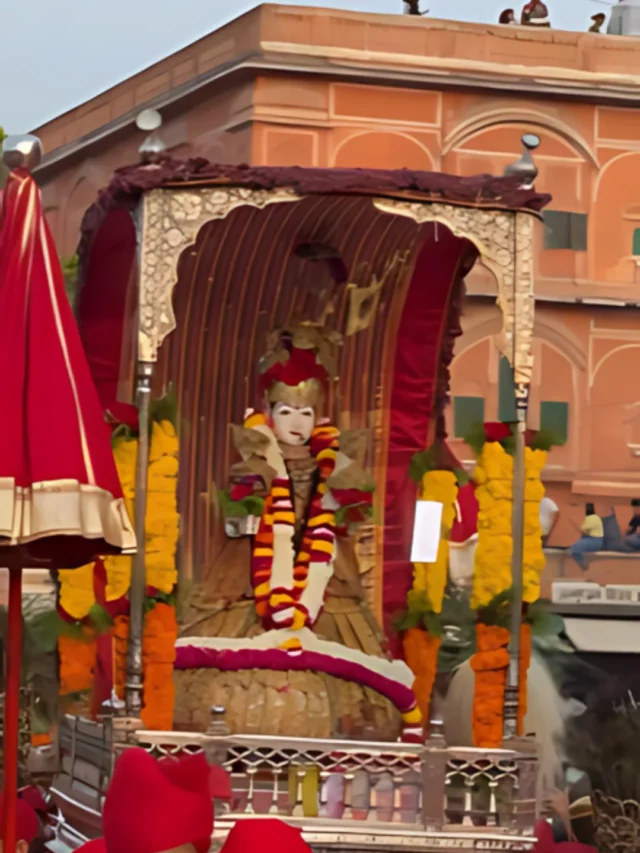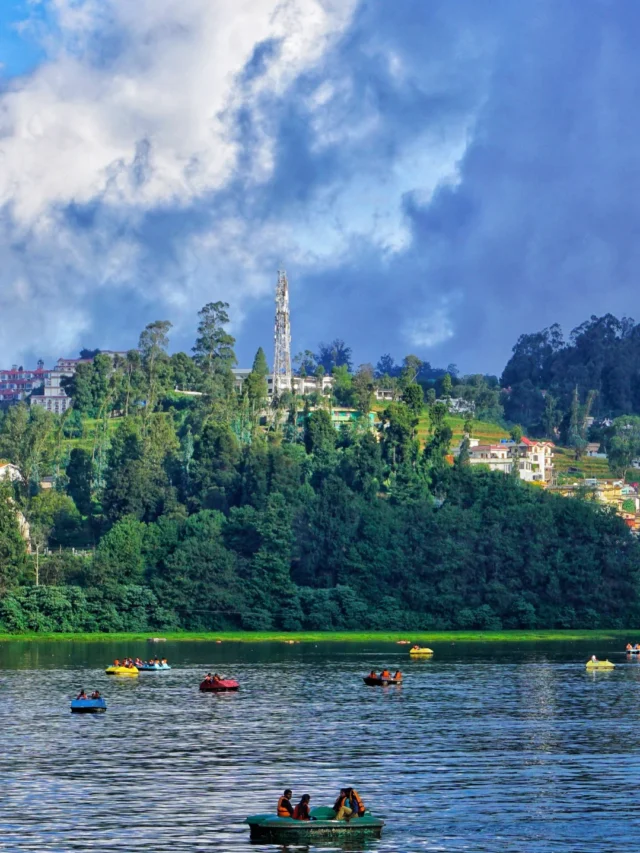The City Palace of Udaipur is a beautiful fort alongside the Pichola lake. It would be best to visit the largest historical fort in Rajasthan when touring the City of Lakes. This fort makes it to the top of the list of all tourists who visit Udaipur.
The granite and marble design of the City Palace contrasts with its bucolic natural surroundings, nestled in the heart of the Aravallis. The regal Palace’s exquisite design is adorned with many domes, arches, and towers and is a sophisticated blend of Chinese, European, and mediaeval architectural styles. The City Palace presents an impressive visual spectacle atop an abundance of verdant gardens. The film industry is also particularly fond of this attraction’s royal splendour; several films, including “Guide” and “Octopussy,” have been filmed here. The City Palace of Udaipur is a delightful journey through time, combining architectural brilliance with a wealth of legacy. This blog will explore this amazing Palace in the centre of the White City of Udaipur, its timings, entry fees, and more.
History of City Palace of Udaipur
The fort carries a rich history of conquests by the Europeans, Mughals, and Rajputs that is imminent in its architectural blend of styles. In the early 1500s, Maharana Udai Singh II constructed the fort and has undergone numerous changes in its architectural design since succeeding rulers left their imprints here.
What is truly intriguing here is that even after years of major architectural changes, the fort has retained its original looks and charms and showcases a harmonious and unaltered appearance.
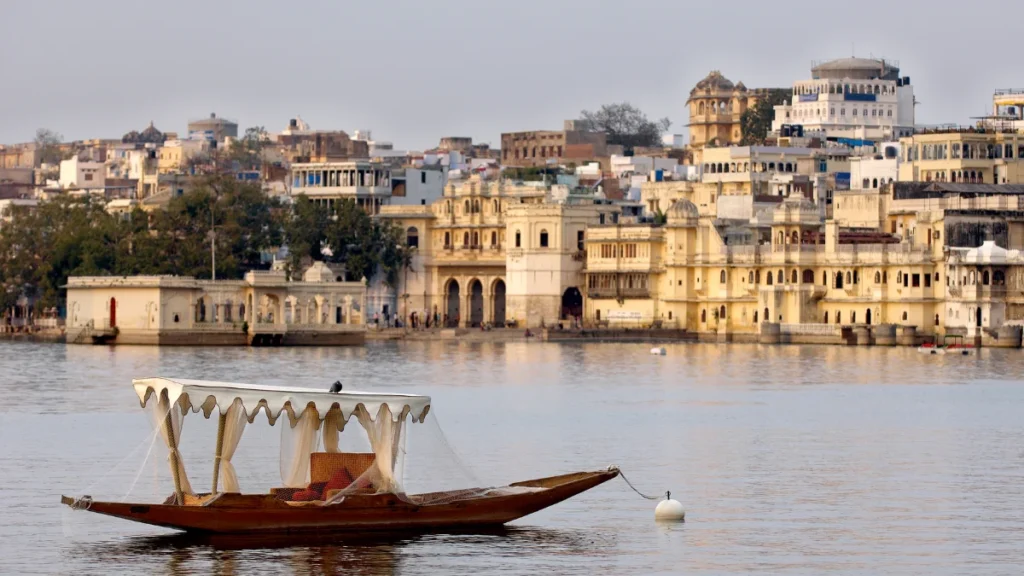
The royal courtyard known as “Rai Angan” was the first building constructed as part of the City Palace complex. Maharana Pratap, the son of Maharana Udai Singh II, became the ruler of Udaipur after his death. The Mughal emperor Akbar defeated Maharana Pratap in the Battle of Haldighati, and the Mughals took control of Udaipur. The Mughals conquered Udaipur, but upon Akbar’s demise, Maharana Pratap’s son, Amar Singh I, regained control of the city.
Due to the Marathas’ growing transgressions, Maharana Bhim Singh was compelled to accept British protection by signing a pact with them. They ruled the Palace until 1947 when India gained its independence, and until 1949, when the Mewar Kingdom was absorbed into democratic India.
What to See in the City Palace of Udaipur
The City Palace of Udaipur complex, constructed of granite and marble, is impressive due to its flawless fusion of European, Chinese, and Mediaeval architectural styles. The complex’s several palaces are brilliantly positioned behind an 801-foot-long and 100-foot-high façade skillfully constructed on Lake Pichola’s crest.
Situated at an altitude of 1,962 feet, the City Palace complex was constructed over a long time, beginning in 1559, by the 22 Sisodia Rajput dynasty. This magnificent edifice is a remarkable creation, greatly aided in development by Udai Singh II and numerous other Maharanas. Eleven petite palaces and other uniformly designed buildings make up the compound.
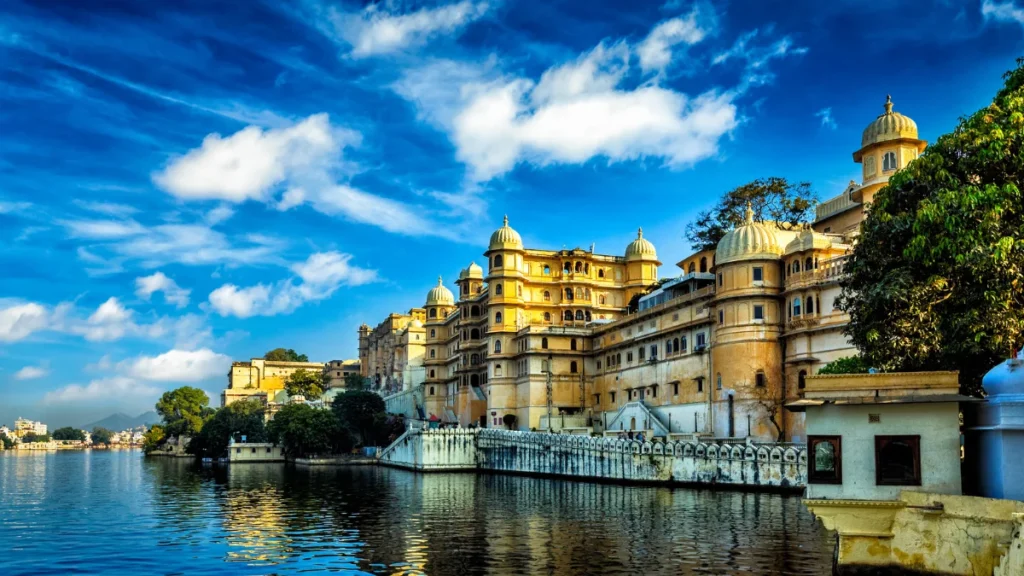
The palace complex has equally impressive exteriors and interiors. Admirable are the elaborate mirror, marble, mural, wall painting, silver, inlay, and coloured glass work that adorn the complex’s balconies, towers, and cupolas.
Gateways or Pols
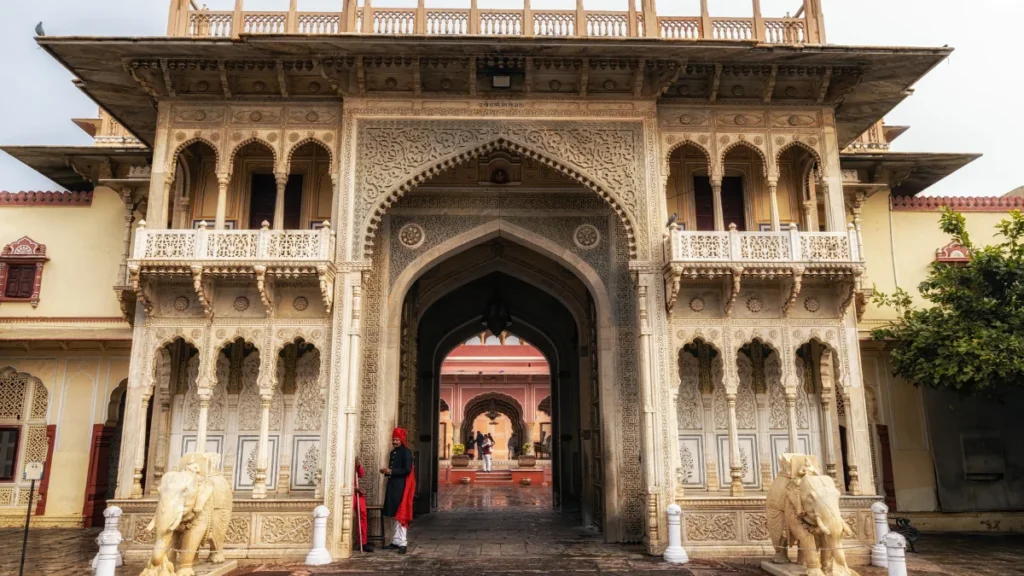
The gateways, also known as Pols, serve as the entrances to the royal complex. The facility has three main entrances. The primary entrance to the complex, known as “Badi Pol” (Great Gate), leads to the first courtyard. The northern entrance to the complex, “Tripola,” is reached after passing through the “Badi Pol,” a triple-arched gate.
The eight marble arches, or Toranas, perfectly line the two gates, Badi Pol and Tripola. There are traditions that the Maharanas weighed themselves against gold and silver here, which was then given to the locals.
After passing through the “Tripolia” gate, one finds themselves in an arena next to the Toran Pol, the site of former elephant battles. Later, these elephants were selected for war, and a Hathi Pol or Elephant Gate was made next to Tripolia Gate in their honour.
Amar Vilas
Amar Vilas is a raised garden that forms the upper court of the complex and is situated at the summit of the City Palace. Constructed in the Mughal architectural style, Amar Vilas serves as the entrance to Badi Mahal, another captivating building within the complex.
Amar Vilas was used as the Maharanas’ vacation residence and was embellished with lovely hanging gardens, fountains, towers, and terraces.
Bari Mahal
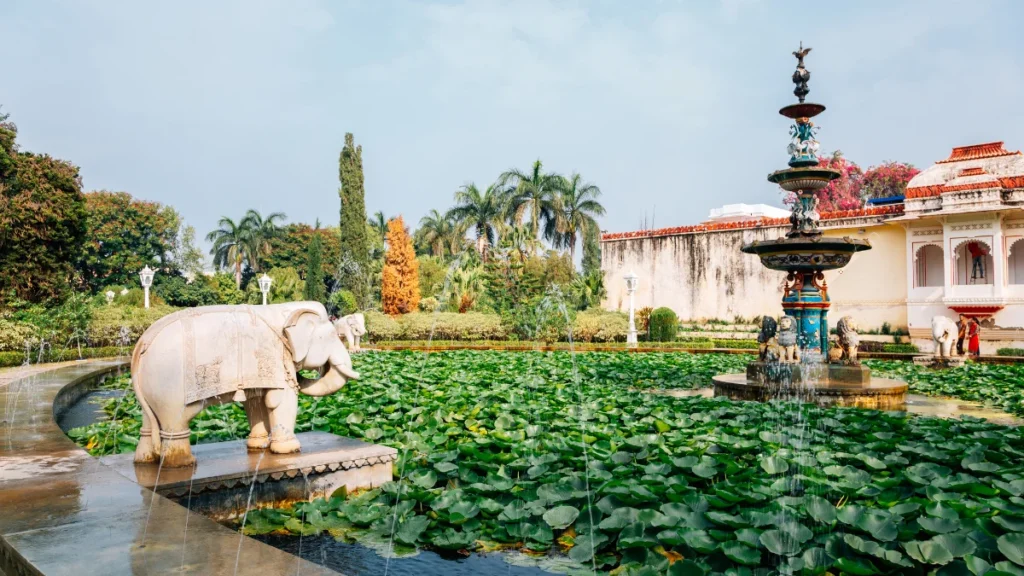
The complex’s principal Palace, Badi Mahal, often called Great Palace or Garden Palace, is perched majestically on an 89-foot-tall rock formation. In addition to a hall showcasing miniature paintings from the 18th and 19th centuries, Badi Mahal has a swimming pool that was once utilised for Holi celebrations.
Bhim Vilas
Another location that art enthusiasts should take notice of is Bhim Vilas. Bhim Vilas is a gallery featuring tiny paintings of Lord Krishna and Radha that depict their life tales. The artwork is so skilful that it is sure to mesmerise everyone.
Dilkusha Mahal
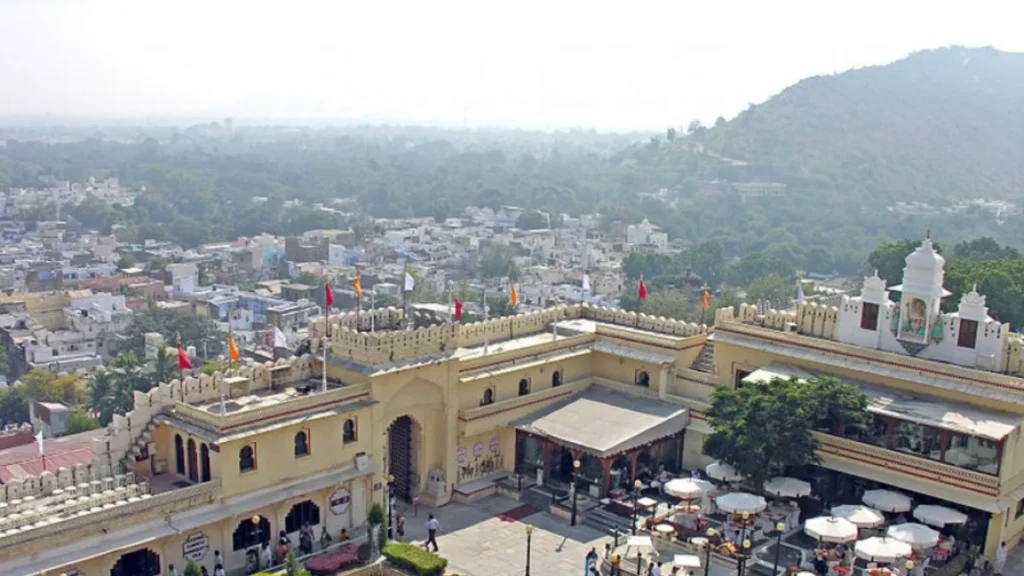
Dilkusha Mahal, which means “the Palace of Joy,” was built in 1620. The facility features stunning murals and wall paintings that are impressive in their artistic merit.
Chitrashalas
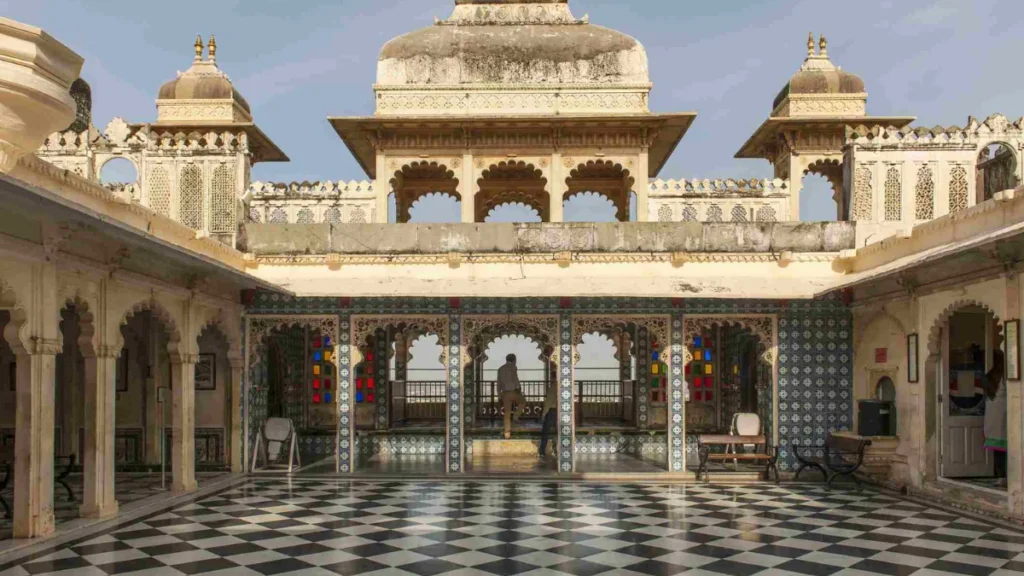
There are two Chitrashalas here – Chini Chitrashala and Choti Chitrashala. They showcase collections of ornamental tiles and paintings that are mesmerising to gaze at.
Durbar Hall
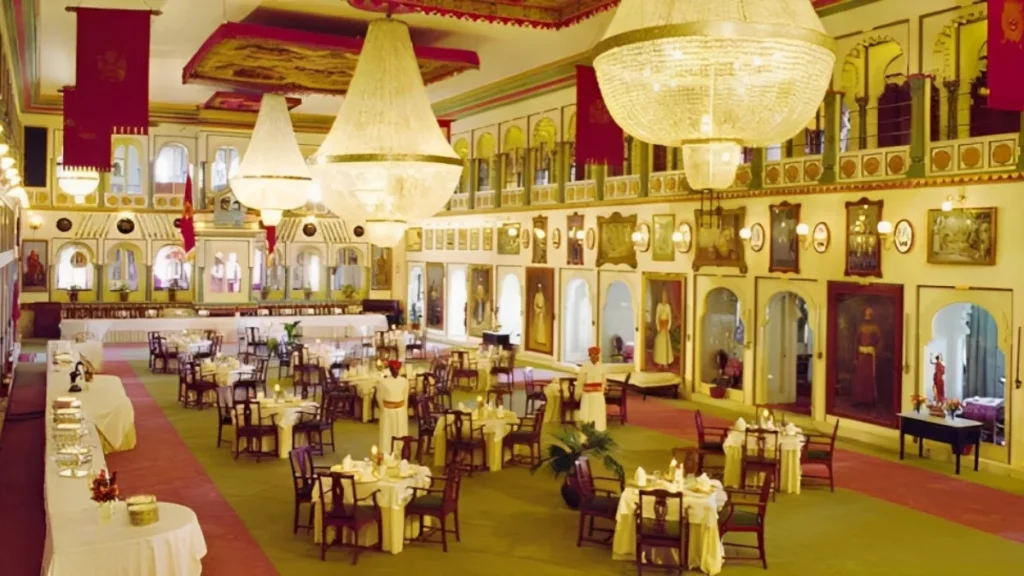
Durbar Hall was a more recent addition to the royal complex and was used as a location for formal occasions. Constructed in 1909 under the reign of Maharana Fateh Singh, the hall boasts opulent chandeliers that accentuate its grandeur.
The Fateh Prakash Palace’s Durbar Hall houses portraits and weaponry belonging to the Maharanas. Before its renaming, Durbar Hall was known as Minto Hall, after Lord Minto, the Viceroy of India, who placed the hall’s foundation stone.
Manak Mahal
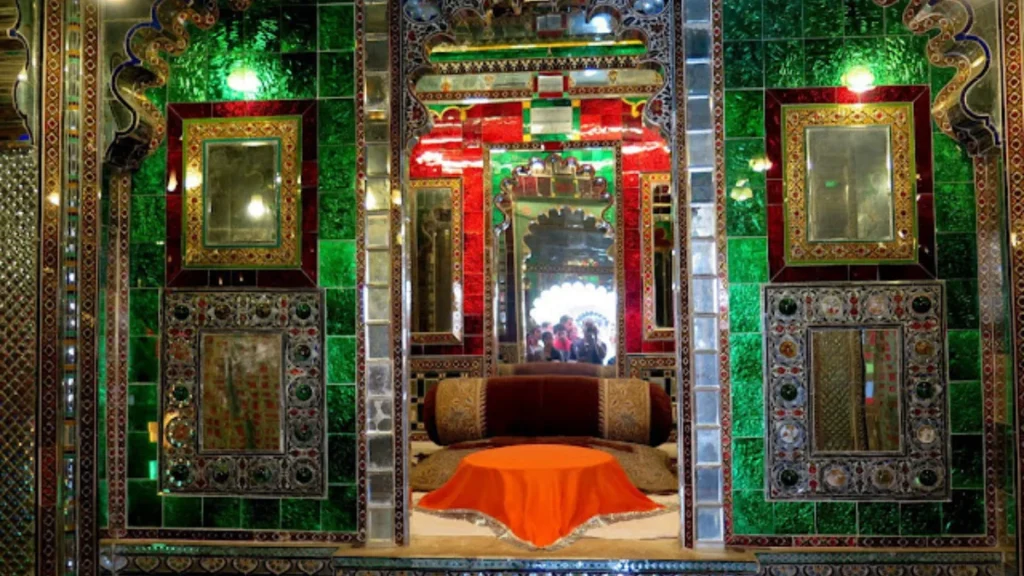
The Mewar kings held ceremonial audiences in this hall. It features an elevated niche entirely encircled by mirrors on the interior. Here, sun-face emblems and other motifs are seen. The biggest of these emblems may also be found on the wall of the lower-level Surya Chopar reception area.
Laxmi Vilas Chowk
It displays unique Mewar paintings and nothing you will find anywhere else.
Krishna Vilas
It showcases miniature paintings of different events held throughout the Rajput rule here.
Mor Chowk
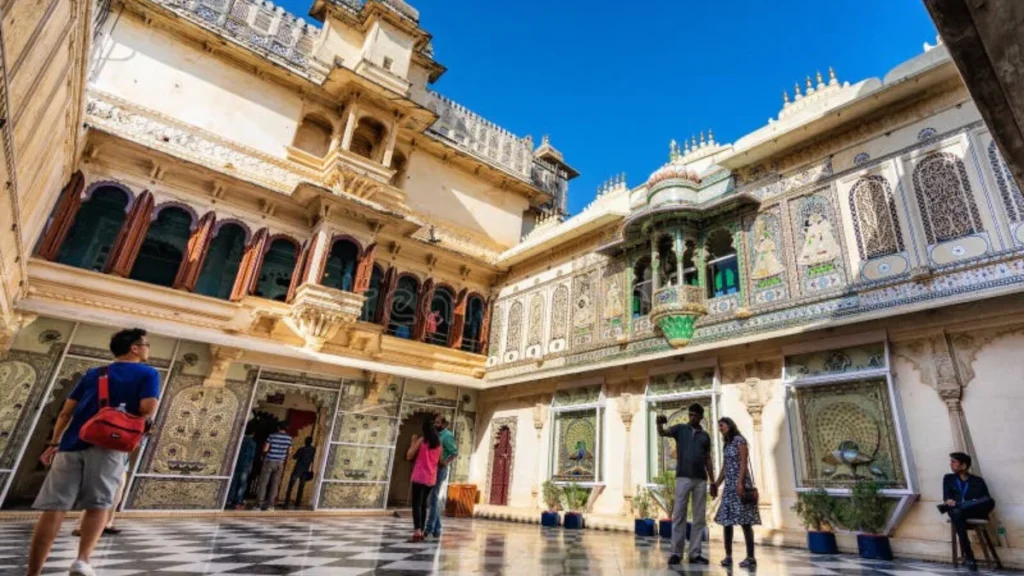
Part of the Palace’s interior, this room features a detailed painting of three peacocks, symbolising the summer, winter, and monsoon seasons. The peacocks were created by five thousand glass pieces, shining in shades of blue, gold, and green. Coloured glass inserts border a projecting balcony on the upper level. The Kanch-ki-Burj, which has a variety of mirror mosaics decorating the walls, is next to this room. Within this chowk lies a smaller, private court called the Badi Charur Chowk.
Rang Bhavan
The temples dedicated to Lord Shiva, Lord Krishna, and Meera Bai are located in the place used to store royal riches long ago.
Sheesh Mahal
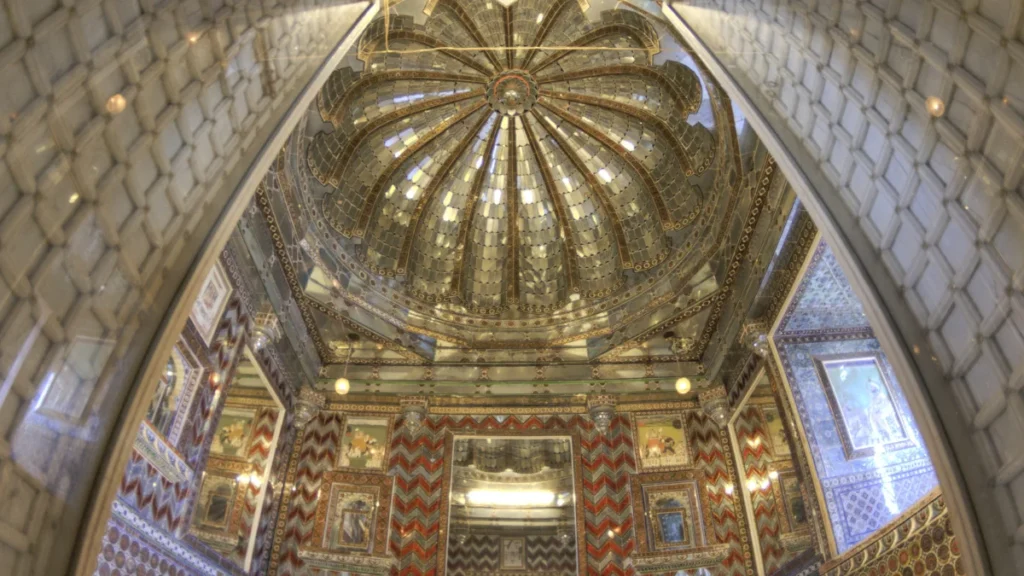
Another stunning building in the compound is the Palace of Mirrors and Glasses, which Maharana Pratap erected in 1716 for his wife, Maharani Ajabde.
City Palace Museum
In 1974, a portion of City Palace and Zenana Mahal, also known as the Ladies Chamber, underwent a museum conversion and is currently accessible to the public.
Labyrinth of Passages
The unique labyrinth of passages is a marvel to look at. They were created to stop surprise attacks by enemies, and people tended to get lost among these or caught on time. The fort is full of such passageways.
Things to Do at City Palace of Udaipur
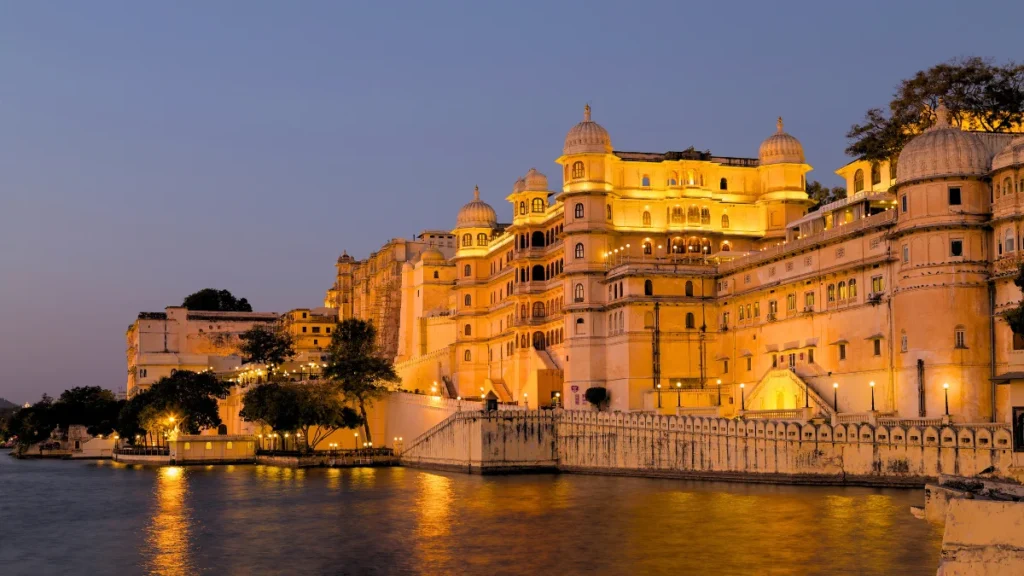
Museum
There is a museum inside the walls of the humongous castle where you can admire the royal possessions of rulers long gone. The museum houses many antique pieces from different wars and the apparel and possessions of these rulers and paintings.
Stay
The Fateh Prakash Palace is a structure inside the City Palace of Udaipur, which is now open to guests for a luxurious stay. Currently a five-star hotel, Fateh Prakash Palace features a fascinating assortment of crystal seats, dressing tables, couches, chairs, beds, cutlery, table fountains, and a carpet adorned with jewels. In 1877, Maharana Sajjan Singh placed an order for these things. But he passed away before it arrived; thus, the gift was sealed for over a century and a half.
You can stay here for a royal experience and dine at their in-house restaurant.
Eat
The fort houses many eateries for you to try the lip-smacking cuisine of Rajasthan. Many stalls are available right outside the Palace for you to indulge in the food of Udaipur.
Shop
Along the entrance of the huge fort, there are many shops selling souvenirs you can buy from. From dupattas to mugs and diaries, you can buy anything that you like. Shops here sell a variety of things, and you can bargain if you like!
View the City of Lakes
From the top of the fort, you can gaze at the beautiful city of Udaipur and take in its white elegance. You can also spot Lake Pichola from the top and relish its glamour.
Interesting Viewpoints
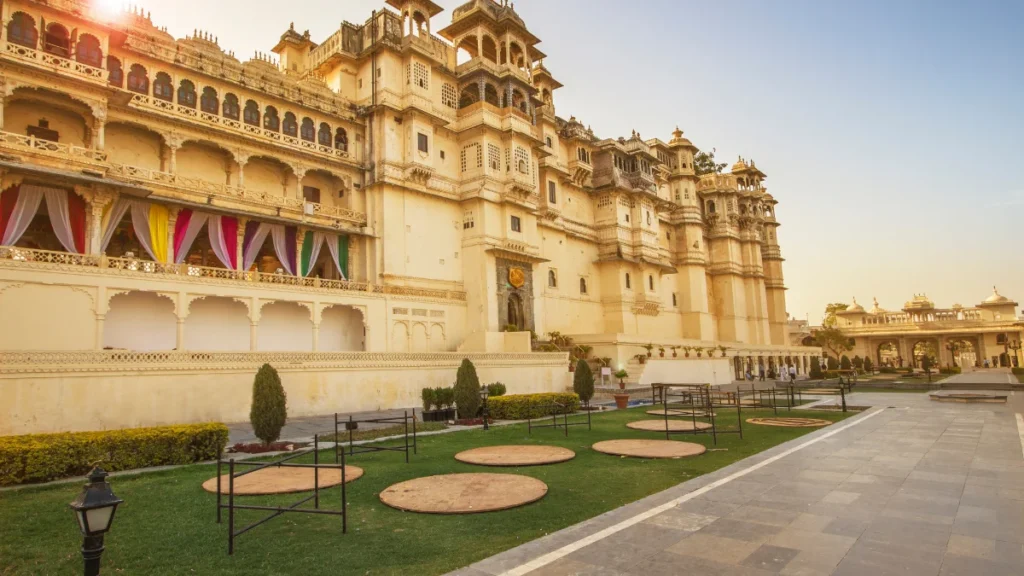
The fort offers insight into the lifestyle of a long-gone era and is sure to mesmerise you. The various courtyards and mahals are a thing of beauty here.
If you wish to take in the beauty of the fort from outside, the Ambrai Ghat is the perfect place to visit. From the steps of the Ambrai Ghat, the backside of the Palace is visible. It is extremely breathtaking during the evening and night when the fort is lit up, and its reflection shines on the flowing river. You can relish this view from cafes and restaurants on the Ghat.
The market outside is a treat for shoppers and food lovers. It offers a variety of stores, from apparel stores to bookstores for you to shop at and tasty samosas and kachoris for you to taste.
Best Time to Visit the City Palace of Udaipur
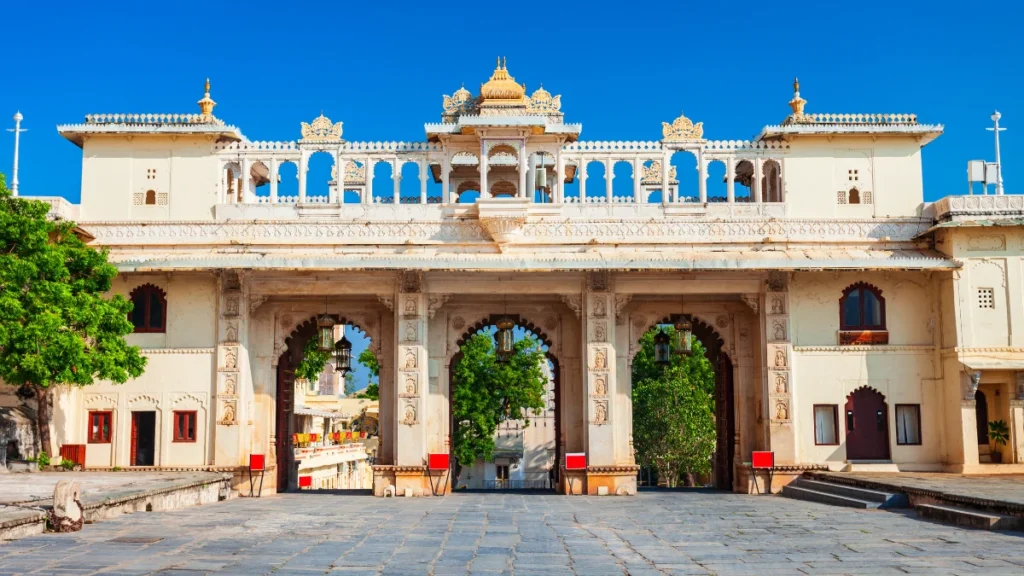
The best time to visit this magnificent fort would be in winter (November to February) when the weather is pleasant and Rajasthan’s scorching humidity and heat have subsided. You can visit in the mornings or the late evenings for solitude as these are times when it is less crowded.
City Palace of Udaipur Timings
The fort is open daily from 09.30 A.M. to 05.30 P.M. A light and sound show is also held during the evenings for you to enjoy.
City Palace of Udaipur Entry Fees
The entry fee is Rs. 30 for adults and Rs. 15 for children, and photography and videography charges are separate. You can get your photography gear in the fort at Rs. 300 and videography gear at Rs. 500. The light and sound show charges range between 200 and 500 rupees.
Audio and tour guides are also available at the fort for you to learn more about this amazing fort.
Museum Timings
The City Palace Museum is open from 09.30 A.M. to 05.30 P.M.
Museum Entry Fees
The entry fee to the museum is separate from the entry fee to the fort. Adults are charged Rs. 250, and children above 5 years are charged Rs. 100. The entry for children below 5 years is free.
Conclusion
One of Rajasthan’s greatest treasures, the City Palace of Udaipur, captures the regal grandeur and breathtaking beauty for which this charming city is known. A harmonious blend of Mughal, Rajput, and European influences, this architectural wonder lies tucked away on the eastern shores of the placid Lake Pichola. Visitors are in awe of the richness and ageless grace characterising the Indian monarchy due to its imposing façade, elaborate carvings, and elaborate balconies. The Mewar dynasty’s rich history, unparalleled beauty, and lasting influence are all demonstrated by the City Palace.
The Palace’s immaculate white marble structure echoes the ethereal splendour of Udaipur. The fort walls are adorned with exquisite mirror work, vibrant glass mosaics, and delicate filigree work that is simply magnificent. In addition, the Palace provides sweeping vistas of Lake Pichola, showing Jag Mandir and the Lake Palace floating on the glistening waters like precious stones. Being the present Maharana of Udaipur’s house, it retains the city’s living history and magnificence, making it a must-visit location for anybody looking to experience Udaipur’s beauty and nobility.
The fort makes for an amazing trip, regardless of your interests in history, architecture, or just getting a taste of India’s regal charm. Prepare for your adventure and embark on a historical excursion within this magnificent Palace that will give you interesting memories and knowledge.


